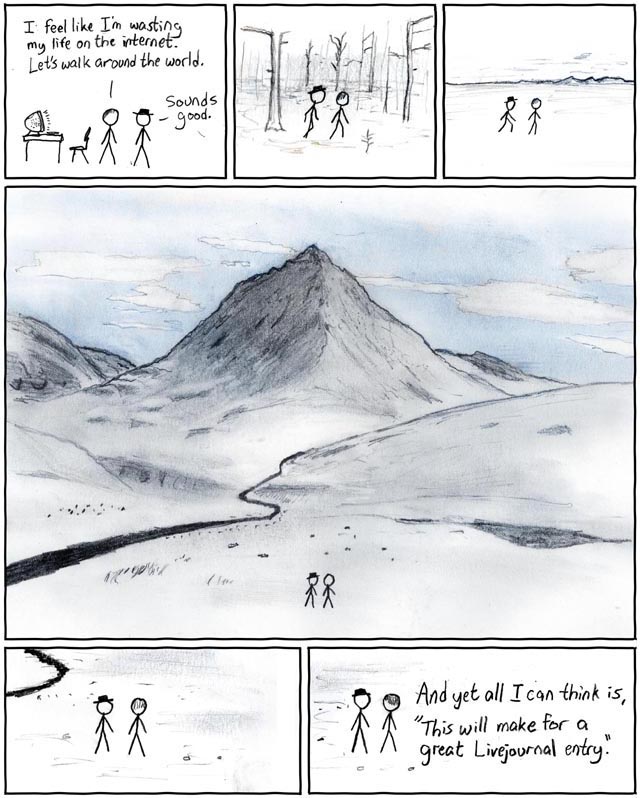Boy, were we glad to see the end!
The finish gate at Senggigi
Lounging on a couch, enjoying a fresh watermelon juice, watching
the blue blue sea just a day later, Rinjani already seemed far far away. I was
flipping through the Lonely Planet or some other guidebook on Indonesia when I
glanced upon these lines or something similar – ‘to try and climb the Rinjani summit and go down to the lake and back in
3 days is definitely a masochistic way of seeing the mountain’. And, guess what, a masochistic
itinerary was what we had picked up, unknowingly. Thinking back, it was more than a bit
frustrating that several of the trek organizer’s offer a 3 day trek (summit
and lake) as a standard option, without a hint of the challenge it actually
entails.
The first day was hard and I already had a feeling that I may not make it to the top. In fact, we were all wondering if we should just head to the lake instead. Anyway, we decided to go ahead with the summit ascent. To our luck, we also had very strong winds almost threatening to blow us of. Halfway to the summit, I lost heart - there was no way I was walking another hour, only to decide to turn back. So all 3 of us ended up turning back at different points. And for the fun part - the descent to the lake involved a lot of scrambling and crossing big boulders - and without poles or sticks, I messed my knee. Anyway, our itinerary ended up going for for a toss as our progress was much slower than what had been planned. We didn't have enough time to make it back to the crater from the lake. What that meant was that we had to start pre-dawn to make up for lost distance. We ended up waking up at 3.30AM to climb up from the lake to the
crater and then proceed back to the base. My knees were shot on the climb down, and one of my friend’s
back condition worsened. I was wondering how it was that we seemed so unfit
compared to some others. To top it all, the 3rd friend in the group was
constantly comparing and contrasting the Everest Base Camp trek (which I had
recently done and Rinjani)… I suspect, I had somewhat disappointed her!
The summit mocking us!
Notwithstanding that Rinjani was one of the most difficult experiences by a far mile, the mountain is beautiful and the views make it worth the hard work! I hope to go back once again, and may be this time I will make it all the way to the top.
Views on the way to the Summit
The crater lake from above
Anyway, a few things that is good to know about Rinjani,
especially if you are an amateur -
1) Although Rinjani isn’t very tall with its
3000-odd metres, it is a difficult mountain to climb. On the first day, you
nearly ascend from close to zero to around 2400m, which makes it a steep and
intense climb. And obviously, choosing the right itinerary makes all the
difference. Everest Base Camp trek is hard, but a lot of the challenge is also
in battling altitude. I found the EBC itinerary very well laid out giving time
for trekkers to ramp up into it and also acclimatize very well. And most importantly,
if you’ve done a few of these, you will know – every mountain is different. So
prepare to be surprised. If you are looking to do both the summit and lake, a 4
day itinerary would give you a decent amount of time at the summit and also
flexibility, if you take more time than originally planned at the summit. A
friend recently did a 4 day trek and also mentioned it was still hard work.
2) The trek agencies didn’t feel like the best (I
have come across) in terms of being able to advise trekkers about things like
the level of difficulty for example. Our guide for example was quite casual
when we asked him about things like a trekking pole, which turned out to be
quite important.
3
3) You can either start the trek at Senaru or
complete at Senggigi or vice versa.
If attempting the summit, the Senaru option may be easier as you attempt
the summit on day 2 and are not tired out.
4
4) If it’s a big group, there may be a chance that
some would want to turn back on the way to the summit. It would be good idea to
check if one or 2 porters can act as guides on summit day. This way no group is
stranded without someone helping them.
5) Our itinerary said 3 hours to the summit – but
on average, it takes much much longer. So, better to be mentally prepared for a
longer summit ascent.
6) The descent into the lake and ascent involves a
fair bit of low-grade rock climbing type moves (no need for equipment, but you
will be using your hands and legs to pull yourself or scrambling on your butts)
7
7) Trekking poles are a must – the summit is very
slippery and on the way down to the lake, the boulders are of very different
heights and you could end up messing your knee (which I did). Think gloves and wind proof
jackets are quite important too. On our summit day, we had one of the worst
winds that was threatening to blow us of
8
8) The nights can be quite cold (even when you come
down to the lake), so pack accordingly.
The first view of the lake
Camping by the lake







